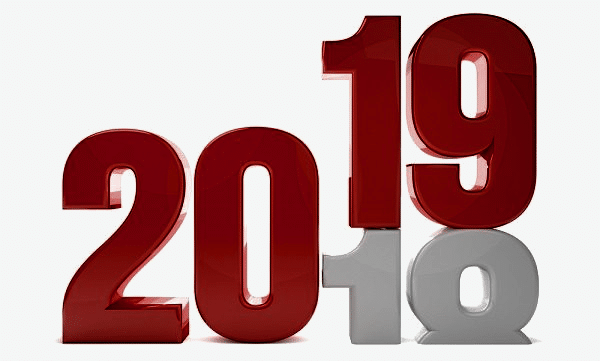My predictions for 2019 -- The year when everything changes… forever

Now, finally, to my predictions for 2019. This is, I believe, my 22nd and possibly last year of looking ahead, so I want to do something different and potentially bigger. Our old format works fine but I’ve been pondering this and I really think we’re at a sea-change in technology. It’s not just that new tech is coming but we as consumers of that tech are in major transitions of our own. It has as much to do with demographics as technology. So while I’ll be looking ahead all this week, coming up with the usual 10 predictions, I want to make sure we all understand that this isn’t business as usual. This time it really IS different.
I’ve been thinking about 50 year cycles. The year 1968, which was 50 years ago when I started writing this column back in November, saw a huge social and political upheaval with student riots all over the world, the rise of the hippy movement in the USA, the Summer of Love and the founding of Intel. Most of the technical progress we have seen since 1968 has been driven by microprocessors, which were largely the work of Intel. And it took 50 years, but we’re now approaching the Internet of Things, where processors will be in everything and everything will be linked or monitored, which is either good or bad depending who you are.
Fifty years before 1968 was 1918, when America became a world power by participating in World War One. The American Century was assured by the end of 1918, because we were on the winning side yet suffered no battlefield carnage. It’s not by accident that IBM, for example, emerged from that war as a maker of something we’d not really seen before -- business machines. Between IBM and National Cash Register (NCR, where IBM’s Tom Watson Sr. had started his career) the information technology industry was born, but we just didn’t know it.
1968 was another year of transition, where political and social institutions were challenged in a terrain that was increasingly technology-driven. The kids who were protesting in 1968 (at least the American kids) were the children of World War Two veterans who were, themselves, the most educated in history because of the GI Bill. The kids of 1968 were smart and educated and solidly middle class where their parents had been wizened children of the Great Depression.
The kids in 1968 were the first young people since the 1920s who could afford to be radicals.
1968 saw the last newspapers set using Linotype machines. Offset printing was high tech after almost a century of Linotype.
1968 was also the year when Doug Engelbart -- handsome as any leading man -- did his famous Mother of All Demos at the Joint Computing Conference in San Francisco, showing us 50 years ago most of the technology we use today.
And 1968 was the year they turned on the Arpanet (commissioned by Bob Taylor in 1966) and what we now call the Internet was born.
Signs of change are all around today. We have an American President who attempts to rule through direct social media communication -- the ultimate extension of FDR’s Fireside Chats during the Great Depression -- yet he’s also a President who doesn’t use a computer and never has. Somehow that’s fitting, because technology news in 2019 is mainly about mobile phones and video gaming -- entertainment technologies. Between games and phones, the personal computer has been made pretty much irrelevant in the news and probably in life as well.
And here’s why: The Macbook Pro on which I am writing this column was built in 2010 -- nearly nine years ago. Who would have thought any computer would be remotely useful 3+ technical generations later? Yet the only reason I’ll replace it, even now, is because my hardware (and especially my GPU) isn’t supported by the newest version of MacOS. My notebook crashes a couple times per day because of software incompatibilities, but it otherwise runs just like a new one.
I’m interested in what’s going to be the outcome of this transition and I’d really like to hear your thoughts. too.
AI is going to be a huge factor, changing the way we work, but also the way we do everything else. Look at the rise of e-sports. When will e-sports transcend real life sports? The value of a good fantasy football quarterback is already higher than the same quarterback’s value in the NFL.
These are the sorts of things I am thinking about. I hope to present them in a series of columns this week that look to 2019, sure, but this time choosing trends that I think will have legs beyond the coming year.
Everything is changing and nothing -- nothing -- will ever be the same again. I hope that’s a good thing.
